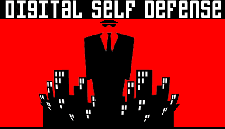
|
 |
||||
|
Black Hat USA Training 2004 Course Length: 2 days Cost: US $1800 before July 1, 2004 or US $2000 after July 1, 2004 |
|
Two Day Course
|
July 24-25 & July 26-27
|
|
Web Applications: Attacks & Defense-Advanced Edition
|
|
|
Saumil Shah
|
|
|
What to bring:
Participants are requested to bring their own laptops The course is OS friendly – Participants using Windows 2000, Linux, Mac OS X are all welcome. The course is Internet independent. |
Overview: The course is based on a highly proven application testing methodology, encompassing black box and white box testing techniques, application security principles and practices, and real world examples. During the course, the participants are introduced to a web application, which they have to secure by the end of the training class. The application lockdown exercise takes the participants through various concepts such as:
The “Web Applications: Attacks and Defense” class features web applications written using ASP or PHP, encompassing security issues such as:
amongst others. The advanced edition of the “Web Applications: Attacks and Defense” class features a more complex web application, written using ASP, PHP, ASP.NET or Java/JSP. In addition to the regular class, the advanced edition class includes security issues such as:
amongst others. Participants may choose their platform of expertise (Windows IIS+SQL Server+ASP, Windows .NET, Linux Apache+MySQL+PHP or Linux J2EE+Oracle) when taking the class. This class involves rigorous hands-on exercises. Key Learning Objectives:
General Learning Objectives:
Who Should Attend:
Course Length: 2 days Cost: US $1800 before July 1, 2004 or US $2000 after July 1, 2004 |
|
Trainer:
|
Saumil Udayan Shah Saumil continues to lead the efforts in e-commerce security research at Net-Square. His focus is on researching vulnerabilities with various e-commerce and web based application systems. Saumil also provides information security consulting services to Net-Square clients, specializing in ethical hacking and security architecture. He holds a designation of Certified Information Systems Security Professional. Saumil has had more than nine years experience with system administration, network architecture, integrating heterogenous platforms, and information security and has perfomed numerous ethical hacking exercises for many significant companies in the IT area. Saumil is a regular speaker at security conferences such as BlackHat, RSA, etc. Previously, Saumil was the Director of Indian operations for Foundstone Inc, where he was instrumental in developing their web application security assessment methodology, the web assessment component of FoundScan - Foundstone's Managed Security Services software and was instrumental in pioneering Foundstone's Ultimate Web Hacking training class. Prior to joining Foundstone, Saumil was a senior consultant with Ernst & Young, where he was responsible for the company's ethical hacking and security architecture solutions. Saumil has also worked at the Indian Institute of Management, Ahmedabad, as a research assistant and is currently a visiting faculty member there. Saumil graduated from Purdue University with a master's degree in computer science and a strong research background in operating systems, networking, infomation security, and cryptography. At Purdue, he was a research assistant in the COAST (Computer Operations, Audit and Security Technology) laboratory. He got his undergraduate degree in computer engineering from Gujarat University, India. Saumil is a co-author of "Web Hacking: Attacks and Defense" (Addison Wesley, 2002) and is the author of "The Anti-Virus Book" (Tata McGraw-Hill, 1996) |
|
(c) 1996-2007 Black Hat
|


